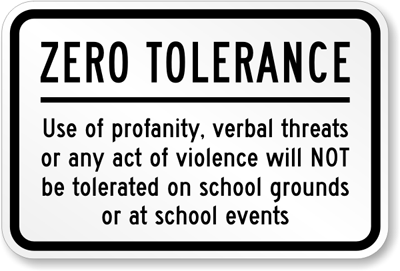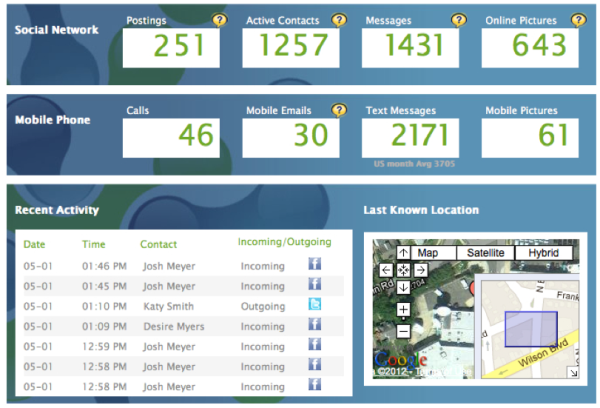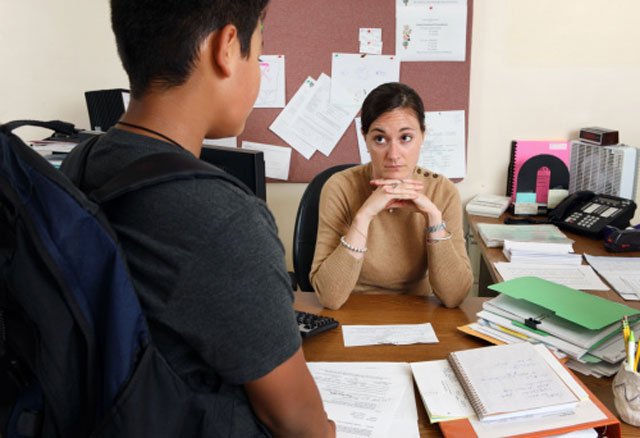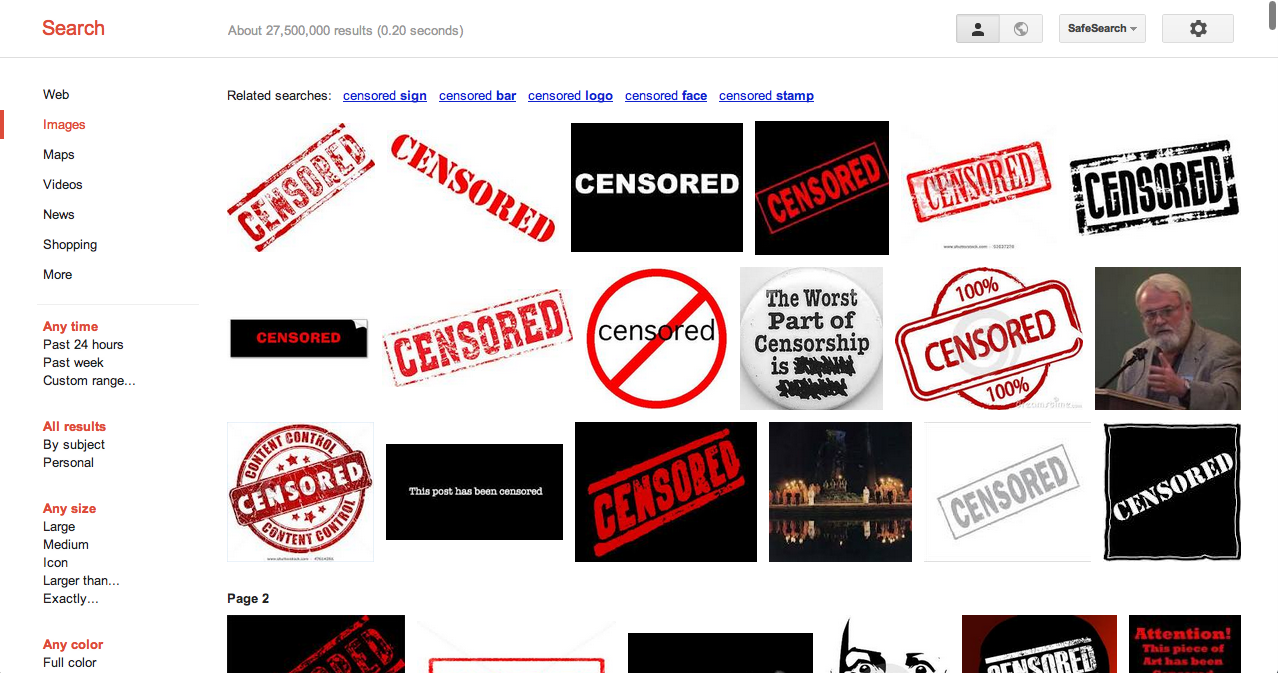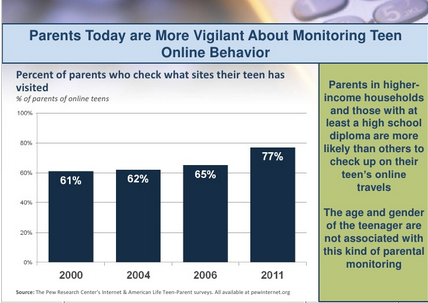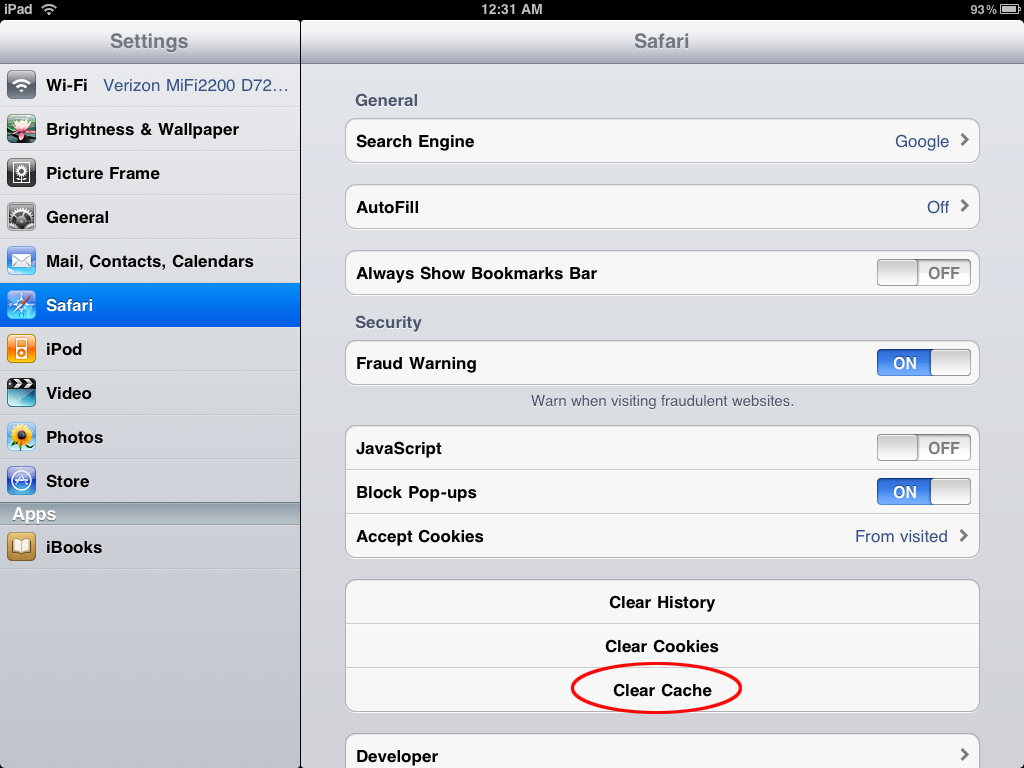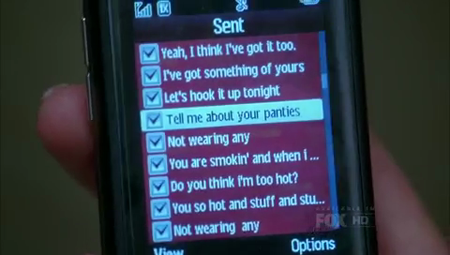 Over the years, I have seen many YouTube videos and unfortunately, the one that is permanently cemented in my mind is “Racist White Teen Girls.” This video is one of the most disturbing things I have ever seen. The girls who speak in it are young, impulsive and troubled.
Over the years, I have seen many YouTube videos and unfortunately, the one that is permanently cemented in my mind is “Racist White Teen Girls.” This video is one of the most disturbing things I have ever seen. The girls who speak in it are young, impulsive and troubled.
Zero Tolerance for Cyberbullying in School
Do you know what your school's policy is on bullying? Every school has one, but policies vary from district to district in how cyberbullying is defined and how it is punished.
Although there are almost as many types of policies as there are schools, a popular one is the zero tolerance policy. “Zero tolerance” means that any and all violations of the policy is grounds for the harshest punishments a school can dole out: namely suspension and expulsion.
Zero tolerance policies used to be reserved for bringing drugs or weapons to school, two offenses that require the removal of the offending student because he or she is endangering the whole student body.
Sexting: Children Are Growing Up Too Quickly
Children in today’s society have a lot of pressure on them and are having to grow up too quickly. It’s unfortunate that they can’t enjoy their childhood without being pressured into doing things they normally wouldn’t do. When I was growing up, I of course had peer pressure but a different kind than kids have today.
How Do You Feel About Parental Monitoring?
When you think about parental monitoring, what are some of the first words that come to mind? I recently read a Canadian study that noted the general change in the way parents have come to view the Internet:
-
2000: parents were enthusiastic about the opportunities the Internet would bring to their children.
-
2004: the Internet had become a source of frustration for parents, who felt that their kids were wasting time online when they should be doing schoolwork; they reported spending too much time fighting about, limiting, and managing their kids' Internet consumption.
When Normal Behavior Is Labeled 'Cyberbullying'
Cyberbullying is using the Internet to harm, threaten, harass, or humiliate others. It can be over social networks, email, texting, or elsewhere online. Cyberbullying is a significant part of many of our kids' lives and has a seriously detrimental impact on their emotional and mental health.
Caution: Google Images and Keeping Your Kids Safe
I love and use Google Images about as much as any parent can. Just this week I've used it to find clip art images for household chore charts, answer my daughter's question about what the flag of Bolivia looks like, and make car-themed bingo cards for my son's birthday party. And it only took me a few seconds.
But all my love for Google Images notwithstanding, I do caution parents whenever their children are using it. Keep your kids safe by monitoring what they search - and what they find.
No matter what the keyword, it's pretty much inevitable that some suggestive, inappropriate, or downright pornographic images are going to appear somewhere in the search results. Luckily, most of the words your kids are going to be searching for will not have these images on the first page.
Teens With Fake Social Networking Profiles: Are Your Kids Safe?
Social networking is on the rise, and so is parental monitoring. The good news is that most parents actively enforce rules regarding Internet safety and engage in various types of monitoring to ensure their child's safety on social networks like Facebook, Twitter, and MySpace.
The bad news is that many kids try to get around parental monitoring by creating a “dummy” profile, and many parents are none the wiser about it.
Kids Safety: 6 Things Parents Should Know About Tumblr
Popular with teens and tweens, Tumblr is a microblogging site that provides a platform for blogging that is super simple and user-friendly. An important kids safety question: does your teen have a Tumbleblog? If so, there are 6 important things about the site you should know.
-
Tumbleblogs are public blogs, and there is no way to change the setting. But there is a loophole: your child can set up a second Tumbleblog that can be password-protected, and neglect the the primary one which is public by default.
-
The “block” feature has limitations. If your child is being harassed or just doesn't like a certain Tumblr user, they can block that person from communicating with them via Tumblr – but they can't block them from seeing their blog. Keep that in mind.
The Text Monster – Are Mobile Phones Keeping Our Kids Up All Night?
It used to be, when our kids couldn’t fall asleep at night, there was something horrible and scary keeping them awake. The boogie monster was in their closet or under their bed. They just knew it! The remedy for parents was pretty simple: turn on the lights, show the child there is nothing there, and then it’s “sweet dreams” and back to sleep. So how do parents intervene when it’s not something scary that’s keeping their kids awake – it’s something they love.
Teens Love Texting and Social Networks But Ignore Email: Is It True?
Most teenagers use social-media sites and parents are wise to it, "friending" their kids and monitoring which sites they visit at an increased rate, according to a study presented at an educators conference today.
Seventy-six percent of teens are on social-media sites, with most -- 93 percent -- of them on Facebook, according to the Pew Internet study that examined the behavior of teens online.
And the usage increases with age -- a sign that parents are sticking tight to a rule that only teens 13-years-old and up can go on social-media sites, something such sites have been dinged for failing to police in the past.
Your Teen’s Online Reputation: Keep It Positive. Keep It Safe
Online reputation is everything to teens, especially when their social lives exist almost entirely online. Much of what teens do and say online is guided by their need for acceptance among their classmates and other peers. But with the ever-changing nature of the Internet, what happens when a teen’s reputation gets away from them and seems to take on a life of its’ own?
Without proper management, just a few simple mistakes posted online could follow your teen years down the road, and even affect potential employment opportunities. While there are many things you and your teen can do to keep their online name in good standing, here are the top three things we think are important:
Top 10 Ways Teens Get Around Parental Monitoring
Do you think you have a pretty good idea of what your child is doing online? You may even have parental controls or parental monitoring software. Despite all the effort you go through to monitor your teen's Internet activity, your kids may still be pulling the wool over your eyes in more ways than one, a new study reveals.
The 2012 Teen Internet Behavior Study from McAfee took a closer look at the ways kids 13-17 hide their Internet activity from their parents. Teens reported that their top 10 methods included:
-
Clearing the browser history (53%)
-
Closing/minimizing browser windows when parent walked in (46%)
-
Hiding or deleting IMs or videos (34%)
The Internet Safety Conversation: 3 Ways to Get Your Kid to Open Up
As Governor Andrew Cuomo and the state of New York join the ranks of the few states that have passed cyberbullying laws, it’s important to understand that simply passing a law is not going to ensure your kids’ online safety. It takes an individual effort on the part of parents and kids to end online harassment, and it starts with honest, open communication.
What Kids Think About Sexting
I'm at a little bit of a loss for words when it comes to the teen sexting phenomenon, and the statistics I see don't seem to give me a clear understanding of the issue.
Is sexting a socially accepted activity among kids, or is there a social stigma to it? Do 1 in 5 kids really do it? And is this more of a middle school or a high school issue?
After stumbling across the transcript of a 2009 teen focus group on sexting, I was even more convinced that even among kids there's not really a consensus.
‘Big Brother’? No, It’s Parental Monitoring
 When her children were ready to have laptops of their own, Jill Ross bought software that would keep an eye on where they went online. One day it offered her a real surprise. She discovered that her 16-year-old daughter had set up her own video channel.
When her children were ready to have laptops of their own, Jill Ross bought software that would keep an eye on where they went online. One day it offered her a real surprise. She discovered that her 16-year-old daughter had set up her own video channel.
{Kyle and Colleen Reed, with Darren, 13, and Trevor, 11, in Golden, Colo. Mr. Reed monitors Darren’s texting with an app.}
What is the Average Age That a Teen Starts Sexting?
It's really hard to be a parent and try to relate to what childhood is like for my kids. I know what it was like to be a tween and teen back in the 20th century, not what it's like today.
Parental Monitoring Is Smart During the '100 Deadliest Days' Driving
A deadly summertime car wreck is a parent's worst nightmare.
It’s the perfect time of year to apply a little overdose of parental monitoring – and keeps those kids safe during those sizzling summer months!
We're smack in the middle of the 100 deadliest driving days for teens aged 15 to 19, which fall between Memorial Day and Labor Day, according to AAA. Car wrecks are the leading cause of death for U.S. teens, and more teens are killed on the road during summer than any other time of year.
My Child Has Been Cyberbullying: What Do I Do Now?
Your heart skipped a beat when you first found out that your child has been cyberbullying others.
Maybe you received a phone call from the principal or another parent, or maybe you stumbled across some bullying messages stored on your child's phone or computer. However you found out, the news probably came as quite a shock.
What to Do When Your Child Is Cyberbullying Victim
If your child has being harassed by a cyberbully, would you know what to do? Responding to cyberbullying can be more complicated than you think, and the right way to react depends on exactly what's going on.
Finding that someone is bullying your child makes you want to act immediately, but keep your cool and ask questions first. Most victims of cyberbullying don't tell their parents because they think doing so will only make it worse. So before you start making phone calls to the bully's parents, the principal, or the police, find out:
Kids Safety: How Depressives Surf the Web
 An interesting article reported by the New York Times: Kids Safety, Facebook Depression and How Depressives Surf the Web. By SRIRAM CHELLAPPAN and RAGHAVENDRA KOTIKALAPUDI
An interesting article reported by the New York Times: Kids Safety, Facebook Depression and How Depressives Surf the Web. By SRIRAM CHELLAPPAN and RAGHAVENDRA KOTIKALAPUDI
IN what way do you spend your time online? Do you check your e-mail compulsively? Watch lots of videos? Switch frequently among multiple Internet applications — from games to file downloads to chat rooms?
We believe that your pattern of Internet use says something about you. Specifically, our research suggests it can offer clues to your mental well-being.
In a study to be published in a forthcoming issue of IEEE Technology and Society Magazine, we and our colleagues found that students who showed signs of depression tended to use the Internet differently from those who showed no symptoms of depression.

